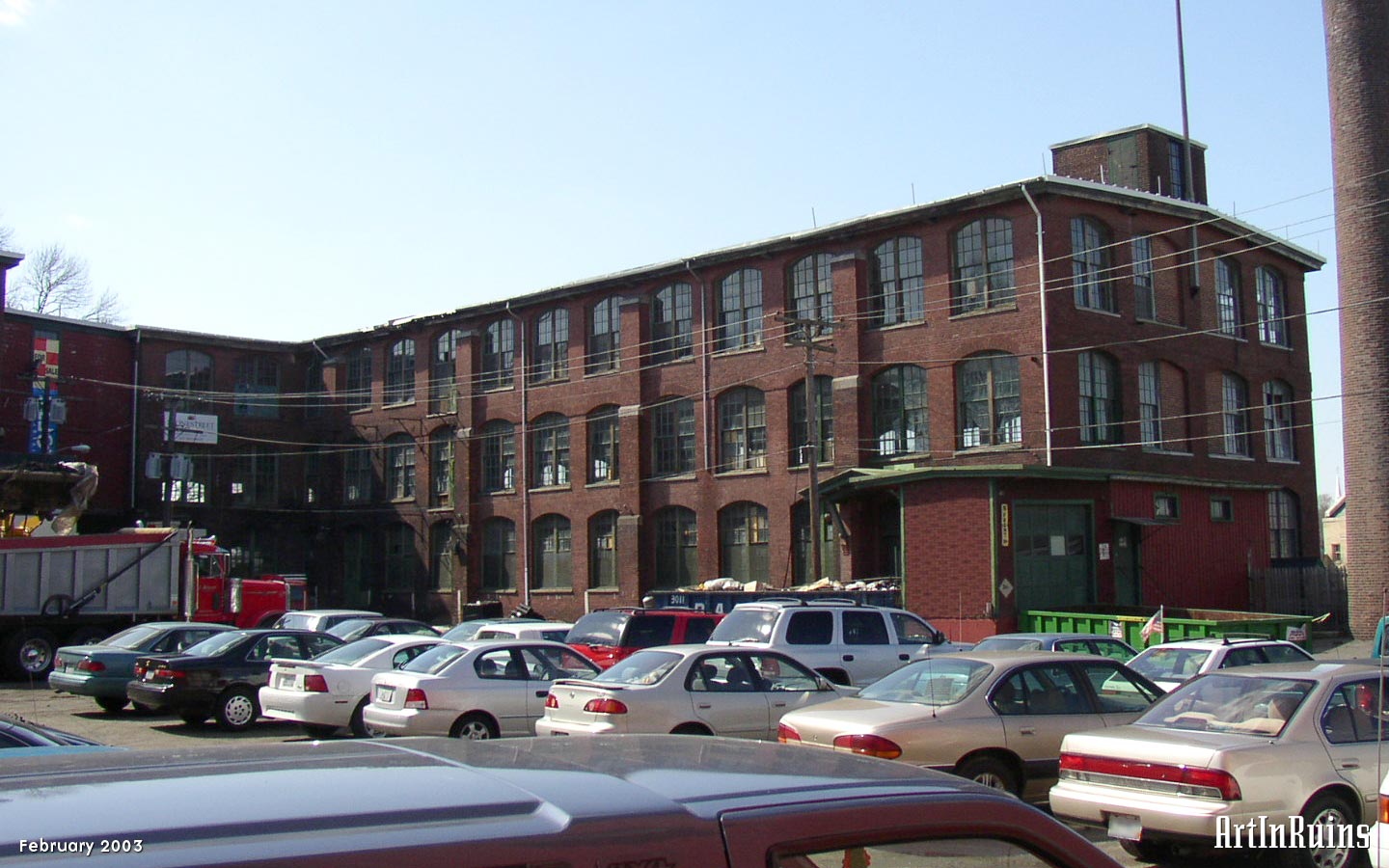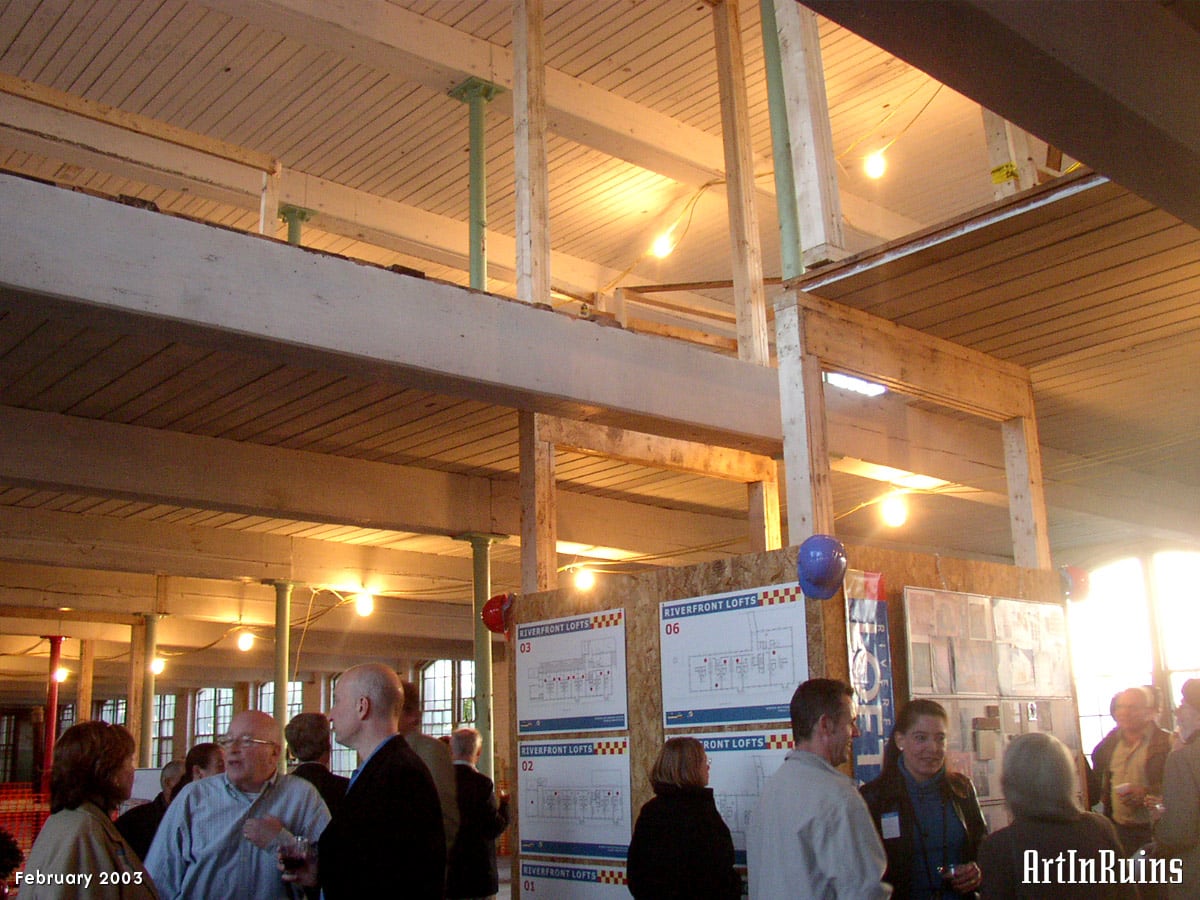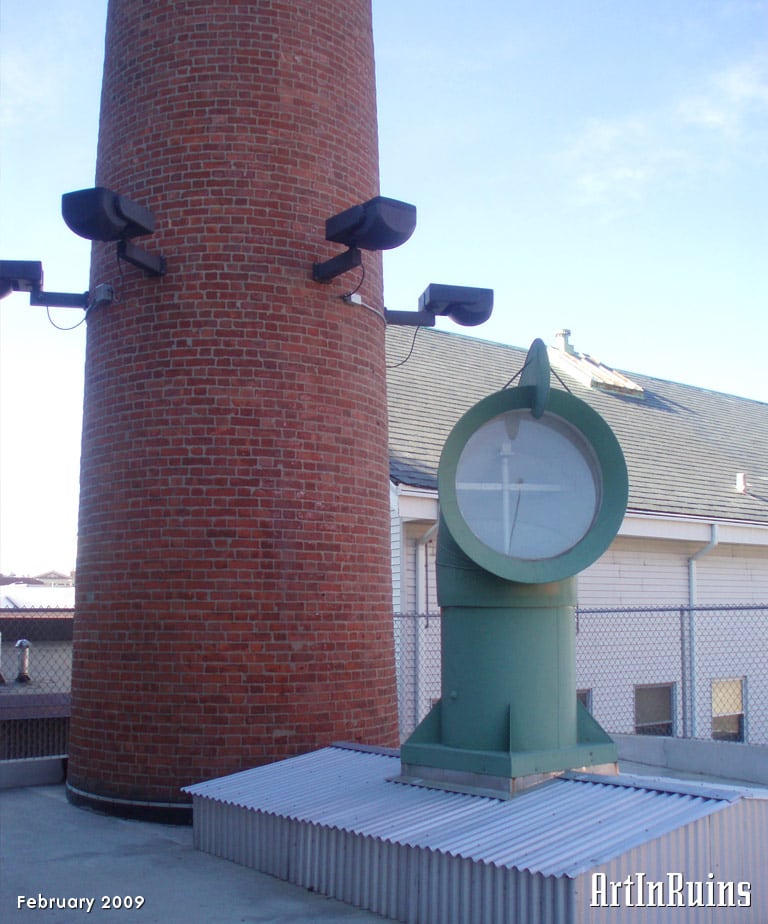Lebanon Mill Company
also known as Vesta Underwear, now Riverfront Lofts
One of the first condominium mill conversions in Pawtucket, taking full advantage of the picturesque Blackstone river
images of this Property
-

Photo by Matthew A. Kierstead, May 2002, for the National Register nomination form, Exchange Street Historic District -

-

-

-
![]()
-
![]()
-
![]()
-
![]()
-
![]()
-
![]()
-
![]()
-
![]()
-
![]()
-
![]()
-
![]()
-
![]()
-
![]()
-
![]()
-
![]()
-
![]()
-
![]()
-
![]()
-
![]()
23 images: Press to view larger or scroll sideways to see more. Contribution by Matthew A. Kierstead for the National Register Nomination form
About this Property
Redevelopment
Riverside Lofts was an ambitious project for Pawtucket, a city where the average home price is much lower than Providence or the connected East Side. Lofts in this complex ranged from 1000 square feet to 2800, and $170,000 to $560,000 (for the fifth floor penthouse). Elevators and balconies were installed riverside with a brand new parking complex as retaining wall to the east. Some of the units are multi-floor and most have river views. They saved some of the old jewelry making machinery to use as sculptures in the lobbies and reused much of the old building materials.
Ranne P. Warner was owner and developer of Riverfront Lofts along with her Boston real estate developer company, Blackstone Exchange. The design for Riverfront Lofts involved the collaboration of Casali, Inc. Architects and Morris Nathanson Design of Pawtucket. The landscape design was developed by Rick Lamb Associates.
Because the previous owner sold off portions of the land adjoining the mill complex, the condo developers had to obtain relief from zoning requirements for minimum lot size, side- and rear-yard setbacks, and street frontage. They also had to obtain relief from the requirement that each unit be a minimum of 2,000 square feet. The Zoning Board voted unanimously in favor of the dimensional variances on May 7, 2004.
Current Events
Units at the Riverfront Mills come on and off the market, ranging in price and size, with river views and without. The complex is still in very good repair and the nearby Rhode Island Cardboard company building has been redeveloped as well. The condo association maintains RiverfrontLoftsCondo.org
History
The building is 6 stories including the newly-constructed penthouse level. Entry is into the 3rd floor, with 2 levels below ground (exposed on the river side).
The 81,086-square-foot former factory complex on the east bank of the Blackstone River was once home to the Lebanon Mill Company, which made knit fabrics. Blackstone Exchange purchased the buildings on August 14, 2002, from J&K Sales Corp., the small jewelry company that had occupied a portion of the complex since 1965.
More Photos
- The Pawtucket Library Flickr collection has 66 photos of Lebanon Mills.
From the Exchange Street Historic District nomination form, prepared by Matthew Kierstead, Ind. Historian; Christine Longiaru, Arch. Historian; Mary Varden, Arch. Assistant.
[…] It is a complex, L-shaped cluster of attached buildings measuring approximately 250 by 190 feet overall. All major buildings have granite foundations, brick walls, and flat roofs, with the exception of a small wood frame connector. Fenestration is almost entirely original throughout and consists predominantly of multi-pane, double-hung, wood sash windows with wood plank sills and segmental arch brick lintels. The building retains a high degree of its physical integrity. The complex can be broken down into sections that correspond to fire insurance maps.
The largest section, Building No. 1, is a 19-bay long, narrow, five-story, brick-walled, flat- roofed building measuring 200 feet long on its north-south axis and 53 feet wide on its east-west axis. The building is of pier-and-spandrel construction, with all upper-story fenestration consisting of paired 9-over-9, double-hung, wood sash windows with wood plank sills and segmental arch brick lintels. It is built into the steep east river bank, with five full stories and a basement rising from the river’s edge on its 19-bay west elevation, and only three stories above grade on its east elevation. A high concrete retaining wall at the south side of the building bears the mill yard above the original steep riverbank. On the west elevation, the building rises on a random ashlar, mortared fieldstone foundation. The basement is lit by a row of shallow segmental arch windows with replacement panes. The facade is broken by two narrow, shallow towers with segmental arch, six-light windows. One tower is located at the center of the elevation, and is flush with the roofline. […] The inscription “Lebanon Mills Co. Knit Goods” is painted in block letters with drop shadows between the third and fourth stories north of the central tower.
Significance
Lebanon Mills is significant at the local level for its association with the textile industry, which is an important and characteristic industry for the Blackstone valley region, including Pawtucket; and the jewelry industry, which is characteristic of and important to the Providence, R. I., Attleboro, Mass., metropolitan region. The complex is an intact representative example of ca. 1900 fireproof, pier-and-spandrel industrial mill construction.
[…] The company incorporated in 1896 and was run by S. Willard Thayer, Alanson Thayer, Jr., and Edward Thayer, Jr. The [former] Broad Street facilities became inadequate and the company purchased the site on Front Street, south west of the Rhode Island Card Board Company, for a new mill. The complex was designed by the Fall River, Mass., mill construction firm of W.T. Henry, and constructed by Wilmarth & Mackillop. […]
The Thayer family gradually lost interest in the business, and in 1935 it merged with Hope Knitting Company, with Leo Grossman as general manager. In 1936 Lebanon Mills rented the main building to Standard Romper, a producer of children’s knit goods later known as Healthtex. […]
More history
From “RHODE ISLAND: An Inventory of Historic Engineering and Industrial Sites”, Gary Kulik and Julia C. Bonham, 1978
Lebanon Knitting, originally Thayer Gage, was founded in 1858. They operated a mill on the eastern border of Pawtucket until the mill burned in 1888. The company located for a time at 106 Broad Street, Pawtucket, but in 1901, five years after incorporation, they built a 4-to S-story, steam-powered, brick mill on the Blackstone River adjacent to the Rhode Island Cardboard Company. Here they produced rubber, linings, astrakhans, jersey cloths, knitted fabrics, flat-rib underwear, cloths for sweaters, golf vests, cardigans, and sweater coats with 170 spring-needle knitting machines, 15 latch-needle knitting machines, and 100 sewing machines. The company made additions to the mill between 1907 and 1921, and sold the building about 1939 to Vesta Underwear. From 1939 to 1975, Lebanon continued in business at a modernized brick complex on School Street. A jewelry company bought the Blackstone River mill in the early 1960s and continues to operate it. No historic machinery survives.
Credit: R. Grieve Fj J. Fernald, Pawtucket Past Present, 1917; Factory Mutual Insurance Drawing, 8 December 1944; Interviews with John McGuire and David Wright’, J. K. Sales, July, 1977.


















